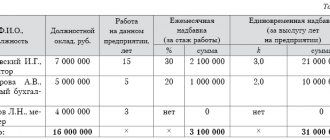The insurance market is developing rapidly. After the introduction of the “MTPL law” in 2002, the demand for other insurance policies increased. Many Russians are getting into the good habit of purchasing life and health contracts, Casco insurance, and property. Today there are a huge number of insurance companies and insurance programs in the insurance market. Therefore, a person cannot always navigate this stream of proposals on his own. For assistance in purchasing policies and selecting optimal contract terms, you can contact insurance agents and insurance brokers.
These two categories of intermediaries working between insurance companies and policy buyers are different from each other. Let us examine in more detail what are their differences and what are their similarities.
Selection of codes
66.21 Risk and damage assessment
66.22 Activities of insurance agents and brokers
66.29 Other auxiliary activities in the field of insurance and pensions
68.31 Activities of real estate agencies on a fee or contract basis
68.31.1 Provision of intermediary services in the purchase and sale of real estate for a fee or on a contractual basis
68.31.11 Provision of intermediary services in the purchase and sale of residential real estate for a fee or on a contractual basis
68.31.12 Provision of intermediary services in the purchase and sale of non-residential real estate for a fee or on a contractual basis
68.31.2 Provision of intermediary services for the rental of real estate for a fee or on a contractual basis
68.31.21 Provision of intermediary services for the rental of residential real estate for a fee or on a contractual basis
68.31.22 Provision of intermediary services for the rental of non-residential real estate for a fee or on a contractual basis
68.31.3 Provision of consulting services in the purchase and sale of real estate for a fee or on a contractual basis
68.31.31 Provision of consulting services in the purchase and sale of residential real estate for a fee or on a contract basis
68.31.32 Providing consulting services for the purchase and sale of non-residential real estate for a fee or on a contractual basis
68.31.4 Provision of consulting services on the rental of real estate for a fee or on a contract basis
68.31.41 Provision of consulting services on the rental of residential real estate for a fee or on a contractual basis
68.31.42 Provision of consulting services on the rental of non-residential real estate for a fee or on a contractual basis
68.31.5 Provision of intermediary services in the assessment of real estate for a fee or on a contractual basis
68.31.51 Provision of intermediary services in the assessment of residential real estate for a fee or on a contractual basis
68.31.52 Provision of intermediary services in the assessment of non-residential real estate for a fee or on a contractual basis
68.32 Management of real estate for a fee or on a contract basis
68.32.1 Management of the operation of housing stock for a fee or on a contract basis
68.32.2 Management of the operation of non-residential assets for a fee or on a contract basis
68.32.3 Activities for technical inventory of real estate
82.99 Activities providing other business support services, not elsewhere classified
96.09 Provision of other personal services not elsewhere classified
Explanations and clarifications
The services of intermediaries in the real estate sector are widespread. The law allows realtors, brokers, commission agents or agencies to operate in one or more types of real estate business:
- purchase;
- sale;
- rent;
- pre-sale preparation;
- consulting;
- assessment;
- information services.
Legal services are not within their competence.
In wholesale trade, the activities of agents trading on behalf and on behalf of others are widespread and are divided into individual types of products. This is possible not only directly, but also through the Internet.
In the retail trade, intermediary services can be provided through commission sales agents who sell in ways permitted for this type of goods.
Insurance intermediary services include the services of agents for regular insurance and reinsurance, except for mandatory social funds associated with state pensions.
Insurance agents can issue insurance policies for:
- life and capacity;
- from a breakup;
- from accidents;
- fires;
- voluntary medical;
- tourist;
- in case of civil liability;
- property;
- risks.
Agency services (intermediary services)
The specifics of the activities of intermediary firms depend on the area in which they are in demand. The agent acts as a representative of the customer on the basis of concluding a commission agreement, assignment or a special agency agreement. The difference in types of agency activities depends on which document serves as the basis:
- the commission agent is obliged to carry out transactions (one or more) on behalf of his client for an agreed fee, depending on the amount of these transactions;
- an attorney, on the basis of an order, works for his principal: performs certain legal actions;
- when concluding an agency agreement, the other party (principal) instructs the agent to perform any, not only legal, actions at the expense of the customer.
Intermediary services can be provided in various areas of business:
- in trade, wholesale and retail;
- in the real estate industry and its management;
- when implementing non-state and voluntary insurance;
- other services provided for by various groups of activities according to OKVED.
What is OKVED and who needs it
OKVED is a directory of codes, each of which corresponds to a specific type of activity. This reference book was developed by the Ministry of Economic Development and is part of the standardization system of the Russian Federation (Rosstandart order “On the adoption and implementation of the All-Russian Classifier of Economic Activities [OKVED2] OK 029-2014 [NACE rev. 2]” dated January 31, 2014 No. 14-st [ ed. dated July 10, 2018]).
Each enterprise or individual entrepreneur is obliged to correctly code its activities when registering for tax purposes. These codes help tax authorities systematize your activities. And the FSS, based on the main OKVED, assigns a contribution rate for injuries.
Also, using the OKVED code, you can determine whether your activity is licensed or not.
Read about this in the articles:
The OKVED code can consist of 2, 3, 4, 5 and 6 characters (ХХ.ХХ.ХХ):
When registering, you must specify a code of at least 4 characters. You also have the right to indicate several codes in case you work in different areas. The code for the main activity is written first.
In the process of work, you have the right to change or supplement your OKVED codes.
When and how you can change OKVED codes, read:
We select OKVED agent services
For agency services, the OKVED code is selected depending on the specific type of intermediary services provided by the enterprise or individual entrepreneur.
The further procedure will be as follows. We determine what activities in our company will be the main one. And we begin to carefully read the directory, in it we first look for a complete match with the name of our services.
Let's take a closer look at several sections of the reference book.
In section G “Wholesale and retail trade; repair of motor vehicles and motorcycles” paragraphs 45, 46, 47 refer to the services of agents in the field of wholesale and retail trade, as well as services related to motor vehicles.
For example, code 46.11 “Activities of agents in the wholesale trade of agricultural raw materials, live animals, textile raw materials and semi-finished products” is suitable for agents whose activities are related to agriculture.
You will learn which OKVED code you need to use when renting non-residential premises or vehicles from the articles:
If nothing suitable is found, then you can subsume the declared activity under the “other services” section.
Agency services also include codes from sections S “Provision of other types” and N “Administrative activities and related additional services”.
Decryption features
When navigating OKVED 2021, you will not encounter any difficulties, despite their huge number. The navigation options are very simple and clear. The classifier consists of 21 sections, divided into 88 class subsections with a detailed description and decoding of any code and types of activities. This is necessary for an error-free selection. For clarity, we list these sections below:
- Agriculture, forestry, hunting, fishing and fish farming
- Mining
- Manufacturing industries
- Providing electricity, gas and steam; air conditioning
- Water supply, sanitation, organization of waste collection and disposal, pollution elimination activities
- Construction
- Wholesale and retail trade; repair of vehicles and motorcycles
- Transportation and storage
- Activities of hotels and catering establishments
- Activities in the field of information and communication
- Financial and insurance activities
- Real estate activities
- Professional, scientific and technical activities
- Administrative activities and related additional services
- Public administration and military security; social Security
- Education
- Activities in the field of health and social services
- Activities in the field of culture, sports, leisure and entertainment
- Provision of other types of services
- Activities of households as employers; undifferentiated activity of private households in the production of goods.
- Activities of extraterritorial organizations and bodies
Decoding codes
For those who do not know the classification of codes, working with them may seem very difficult. You need to understand the structure of the code. Let's turn to her:
XX. XX. - view;
XX. X. – subgroup;
XX. - group;
XX.X. – subclass;
XX – class.
In most cases, classes and subclasses are used. Individual classes are used with the addition of specific letters. As we can see from the composition, the full activity code corresponding to one or another profile can contain from 2 to 6 characters separated by dots.
Let's look at an example:
45 – includes wholesale and retail trade in motor vehicles, motorcycles and their repair.
45.1 – trade in motor vehicles.
45.11 – trade in cars and light-duty trucks.
45.11.3 – retail trade in passenger cars and other light vehicles.
45.11.39 – retail trade in passenger cars and other light motor vehicles, not included in other groups.
Important! When registering as an individual entrepreneur, at least 4 characters of the code are indicated. The application will be rejected if fewer numbers are claimed.
OKVED - agency services for finding clients
Let us dwell in more detail on the provision of services for finding clients in areas not related to trade. In our time of fierce competition, this service has become very in demand.
Unfortunately, after reviewing the entire collection of OKVED, it is not possible to select a code with exactly this name. But there's nothing wrong with that. There are general purpose codes for such situations.
For this activity, it would be correct to use code 82.99, specified in section N “Administrative activities and related additional services.”
The code has the following decoding:
- clause 82 - administrative and economic activities, support activities to ensure the functioning of the organization, activities to provide other support services for business;
- subclause 99 - activities related to the provision of other support services for business, not included in other groups.
Constitutional meaning of the term “foreign agent” and its content
Is the status of a “foreign agent” a negative assessment of the activities of the organization that acquired this status? Is it a "general" assessment ? Is it negative (condemned, vicious) to receive money from foreign sources for political activities in Russia ? Is it possible for an NPO to participate in such activities after acquiring such status, taking advantage of state protection from those who prevent the “foreign agent” from doing so? Why do NPOs receive (acquire) the status of “foreign agents” in general? Maybe there is some specific goal?
To answer these (maybe obvious and simple) questions, I propose to recall the interpretation of the Constitution of the Russian Federation by the Constitutional Court of the Russian Federation , worked out in the seemingly “glorious” time of 2014 in Resolution No. 10-P (https://doc. ksrf.ru/decision/KSRFDecision158063.pdf). All people living in Russia (including, of course, the President of Russia, and judges, and deputies of the State Duma of the Russian Federation, and senators of the Federation Council of the Russian Federation, and prosecutors, and investigators, and employees of the Ministry of Justice of Russia, and regional leaders, and ordinary people) should remember that the interpretation of the Constitution set out below by the Constitutional Court of the Russian Federation is official and binding for all of us (part 1 of Article 106 of the Federal Law on the Constitutional Code of the Russian Federation). It is also worth remembering that the resolution in which this meaning is revealed is “final and not subject to appeal” (Part 1 of Article 79 of the Federal Law on the Constitutional Code of the Russian Federation).
Brief conclusions . The Constitutional Court of the Russian Federation directly stated that:
- The status of a “foreign agent” is not a negative assessment (or an assessment in general) of the person who has this status. Because of this, it is obvious that neither in our deeds nor in our speech we have any right to discriminate against those persons who have received this status;
- Receiving money from foreign sources for political activities in Russia is the exercise of constitutional rights. It’s good that they are engaged in such (political, socially useful) activities, and it doesn’t matter if they use foreign money! Engagement in politics by a variety of people, even with anyone’s money (including money from foreigners) is under state protection;
- Inclusion in the register of foreign agents is only a way to achieve openness regarding the sources of its financing. No more.
Below are quotes from the ruling of the Constitutional Court of the Russian Federation, from which these conclusions directly follow:
1. About the fact that “foreign agent” is not a negative assessment (as well as an assessment in general):
- “recognition of specific Russian non-profit organizations as performing the functions of a foreign agent <...> does not mean an indication of a threat emanating from these organizations to certain state and public institutions, even if they act on behalf of and (or) in the interests of relevant foreign sources, and therefore any attempts to discover negative contexts in the phrase “foreign agent”, based on stereotypes that developed during the Soviet period and, essentially, have lost their meaning in modern realities, are devoid of any constitutional and legal grounds” (paragraph 4 of clause 3.1 of the resolution);
- “the legislative structure of a non-profit organization performing the functions of a foreign agent does not imply a negative assessment of such an organization by the state, is not intended to create a negative attitude towards the political activities it carries out, and thus cannot be perceived as a manifestation of distrust or a desire to discredit such a non-profit organization and (or ) the goals of its activities” (paragraph 5 of clause 3.1 of the resolution).
2. The fact that receiving money from foreign sources for political activities in Russia is the implementation of constitutional rights and therefore the implementation of politics with money from foreigners should be protected by the state:
- “The receipt of foreign funding by Russian non-profit organizations taking part in political activities <...> in itself cannot call into question the loyalty of such organizations to their state. Otherwise, not only would it be incompatible with the constitutional need to ensure mutual trust and respect between citizens (their associations) and the state, but it would also contradict Article 21 (Part 1) of the Constitution of the Russian Federation, which imposes on the state the obligation to protect the dignity of the individual and not allow it to be diminished" ( paragraph 5 of clause 3.1 of the resolution);
- “non-profit organizations (including public associations) receiving funds and other property from foreign sources have the right to participate in political activities under the same legal conditions, regardless of their attitude to the decisions made by government authorities and the policies pursued by them. This conclusion is also based on <...> the right of everyone to freedom of opinion and their free expression without any distinction, including with regard to the nature of political and other beliefs <...>, and <...> the right of everyone without interference hold their opinions and express them freely <…>, as well as the right of every person to freedom of association with others <…>, which <…> is not only associated with the right to create associations, but also guarantees the ability of the association to carry out its activities unhindered.” (paragraphs 7 and 8 of clause 3.1 of the resolution);
- “a non-profit organization performing the functions of a foreign agent <…> is not deprived <…> of the opportunity to participate in political activities carried out on the territory of the Russian Federation, and thereby is not placed in a discriminatory position in comparison with non-profit organizations that do not receive foreign funding” (paragraph 6 of clause 3.2 of the resolution).
3. About the fact that inclusion in the register of foreign agents is only a way to achieve openness regarding the sources of its financing:
- “imposing on a non-profit organization performing the functions of a foreign agent the obligation to submit an application for inclusion in the appropriate register before starting political activities is aimed only at additionally ensuring transparency (openness) of the activities of such an organization and does not prevent it from applying for funding and receiving it from both foreign, and from Russian sources, and also does not mean a differentiated attitude towards non-profit organizations participating in political activities, depending on the goals, forms and methods of this activity” (paragraph 6 of clause 3.2 of the resolution);
- the provisions of the laws “do not prohibit non-profit organizations, including public associations, from receiving funds and other property from foreign sources, do not create obstacles to their participation in political activities carried out on the territory of the Russian Federation, do not mean government intervention in the activities of non-profit organizations and the implementation of control over the appropriateness of its content, do not deprive such organizations and all persons involved in their activities of the right to judicial protection” (paragraph 12 of clause 3.2 of the resolution).
Results
Having considered what OKVED is, we can say that choosing the correct code will not be very difficult; the main thing is to carefully read the reference book itself. In this case, for agent services for finding clients, there is no exact match in the directory, and we can use the code 82.99. If you doubt the correctness of the selected code, you can always call the tax office and consult with them.
You can find the current reference book in the section “All-Russian classifiers assigned to the Ministry of Economic Development of Russia” on the website of the Ministry of Economic Development of Russia.
Inzuro Affiliate Program
- Do you have your own website and want to make money in car insurance?
Install our widget on your website:
- ✅ Nice and adaptive design!
✅ Easy installation, does not require special programming knowledge!
✅ The registration process is as automated as possible!
✅ Convenient technical support!
✅ High percentage of sales of each policy!
✅ Transparent and complete statistics for each client!
✅ Registration is available from any region of the country!
✅ The widget is easy to customize to suit your corporate style!
Our widget will be useful to insurance agents, brokers, car dealerships, Internet services and more.
What does the widget look like?
Start making money in insurance now!
- Submit your application
Have questions? [email protected]
Intermediary and agency services: how to choose OKVED codes
An intermediary/agent is a business entity whose activity is to identify the client’s needs and find solutions that meet the criteria established by the client among those available.
- realtors carry out, at the buyer’s request, a search for a property from among those offered by sellers;
- travel agencies search for a suitable tour for the client from those presented by tour operators;
- financial brokers, for example, sell insurance policies of insurance companies or enter into loan agreements with clients on behalf of another person - the actual lender, etc.
Who is an insurance broker
A broker is an individual entrepreneur or a legal entity of any form of ownership, usually an LLC. His documents must indicate OKVED 66.22, indicating that the broker has the right to provide intermediary insurance services.
This is a person or a small company - an intermediary between the policyholder (client) and the insurer (insurance companies). The broker's activity is searching for clients, as well as selecting the most optimal offers for their customers. The broker acts in the interests of his client.
An insurance broker with extensive experience usually works in several areas. He is most often an expert in areas such as auto insurance, life and health insurance, property insurance, health insurance, business insurance, etc.
OKVED-2019 codes for intermediary/agency services
So, there are no universal OKVED codes for intermediary services. But you can select codes that best describe the nature of the business entity’s activities from the available groupings by methodically studying the classifier.
Here are examples of grouping codes that are most often used in practice to designate a business entity’s activities as an intermediary or agent in a particular area of business (according to NACE, rev. 2):
- 64.1 - monetary intermediation;
- 66.19 - other auxiliary activities in the field of financial services, except for insurance and pensions;
- 66.2 - auxiliary activities in the field of insurance and pensions
- 66.22 - activities of insurance agents and brokers;
- 66.29 - other auxiliary activities in the field of insurance and pensions;
- 68.31 - activities of real estate agencies for a fee or on a contract basis;
- 68.32 - management of real estate for a fee or on a contractual basis;
- 74.90 - other professional, scientific and technical activities, not included in other groups;
- 82.9 - activities related to the provision of support services for business, not included in other groups;
- 82.99 - activities related to the provision of other support services for business, not included in other groups;
- 96.09 - provision of other personal services not included in other groups, etc.
Note! The proposed list of OKVED-2019 codes for intermediary services is, of course, not exhaustive; an economic entity, at its own discretion, can designate other types of economic activities. The main thing is that they correspond to the activities that the subject actually conducts (see article “Discrepancy between OKVED and actual activities: the position of the Federal Tax Service”).
How many OKVED codes can you choose?
Important! Information about the types of economic activities of the subject refers to information that is mandatory entered into the Unified State Register of Legal Entities (subparagraph “p”, paragraph 1, article 5 of the law “On State Registration of Legal Entities.” dated 08.08.2001 No. 129-FZ). Thus, the business entity indicates in the application for registration at least one OKVED code (denoting the main type of activity of the entity).
In addition, a business entity can indicate OKVED additional types of activities, and their number is not limited by law.
Typically, OKVED of intermediary services is indicated in the section “Additional types of activities,” but this rule is also not approved at the legislative level. Theoretically, the OKVED code for intermediary services can also designate the main (and only) type of activity, if in fact the subject is not engaged in anything else.
Conclusion! You can select a number of types of intermediary services, indicating one of them as the main activity (or all as additional). The law does not limit entrepreneurs in establishing the priority of a particular type of activity.
The issue of choosing OKVED is discussed in detail in our other articles. For example, “How many OKVED codes can you indicate when registering an individual entrepreneur?” or “The procedure for changing OKVED codes for LLCs in 2018-2019.” We recommend reading them.
So, we have found out what to follow when choosing OKVED for the provision of intermediary services. A separate universal OKVED code for the activities of intermediaries/agents has not yet been introduced. However, many groupings of activities according to the current classifier OKVED2 OK 029-2014 (NACE, rev. 2) contain OKVED to designate intermediary services in a particular field of economic activity.
OKVED codes for participation in government procurement: which ones to choose?
To answer this question, it is necessary to refer to the Federal Law of April 5, 2013 No. 44-FZ “On the contract system in the field of procurement of goods, works, services to meet state and municipal needs.” It states that there are no requirements for the OKVED code for participation in government procurement. Therefore, rejection of a participant for this reason will be unlawful.
You can participate in procurement without having a specific OKVED code. However, if you do this regularly, it may raise questions from the tax authority. Therefore, it would be better if you add the missing code to your documentation.
If you are planning to participate randomly in tenders and do not know which OKVED codes need to be opened, then in Table 1 you will find a list of the necessary codes that can be opened in this case:
Table 1
| No. | Code | Name |
| 1 | 46.13 | Activities of agents in the wholesale trade of timber and building materials |
| 2 | 46.15 | Activities of agents in the wholesale trade of furniture, household goods, hardware, cutlery and other metal products |
| 3 | 45.11 | Trade in passenger cars and light trucks |
| 4 | 45.19 | Trade in other motor vehicles |
| 5 | 45.31 | Wholesale trade of automobile parts, assemblies and accessories |
| 6 | 46.11 | Activities of agents in the wholesale trade of agricultural raw materials, live animals, textile raw materials and semi-finished products |
| 7 | 46.14 | Activities of agents in the wholesale trade of machinery, industrial equipment, ships and aircraft |
| 8 | 46.16 | Activities of agents in the wholesale trade of textiles, clothing, footwear, leather and fur products |
| 9 | 46.17 | Activities of agents in the wholesale trade of food, beverages and tobacco products |
| 10 | 46.18 | Activities of agents specializing in wholesale trade of other specific types of goods |
| 11 | 46.19 | Activities of agents for wholesale trade of a universal range of goods |
| 12 | 46.31 | Wholesale trade of fruits and vegetables |
| 13 | 46.36 | Wholesale trade of sugar, chocolate and sugary confectionery products |
| 14 | 46.43 | Wholesale trade of household electrical goods |
| 15 | 46.44 | Wholesale trade of ceramics and glass products and cleaning products |
| 16 | 46.46 | Wholesale trade of pharmaceutical products |
| 17 | 46.47 | Wholesale trade of furniture, carpets and lighting equipment |
| 18 | 46.49 | Wholesale trade of other household goods |
| 19 | 46.51 | Wholesale trade of computers, peripheral devices for computers and software |
| 20 | 46.52 | Wholesale trade of electronic and telecommunication equipment and its spare parts |
| 21 | 46.61 | Wholesale trade of machinery, equipment and tools for agriculture |
| 22 | 46.69 | Wholesale trade of other machinery and equipment |
| 23 | 46.73 | Wholesale trade in timber, building materials and sanitary equipment |
| 24 | 46.74 | Wholesale trade of hardware, plumbing and heating equipment and accessories |
| 25 | 62.02 | Advisory activities and work in the field of computer technology |
This list is approximate and is formed on the basis of the presence in it of types of activities for the sale of goods, carrying out work and providing services. Based on this example, you can create your list of activities and be guided by it. At the beginning of your activity, you can choose any other codes for yourself at your discretion. In the future, when you have experience in executing government contracts, you decide on a niche and clearly understand what kind of activity you want to engage in, OKVED can be changed. We talked about this above.
Intermediary services according to OKVED codes
This type of business, such as intermediary services, has many directions. The most common of them are assistance in selling real estate and obtaining various insurances. This is also another activity that is aimed at searching and providing various information that is used by individuals and legal entities for their own needs. Despite this specificity, all intermediary services are not listed according to OKVED codes, and their classification comes down to some personalization of individual types of activities.
What is meant by intermediary services?
Before moving on to considering the OKVED code of all intermediary services, you need to have an idea of what type of business this is. If you look closely at the modern market for various services, using real estate as an example, you will notice that those people who want to buy or sell an apartment or house turn to various real estate companies for help. Their responsibilities include selecting the required property and assisting in the execution of the transaction, during which ownership will pass from one owner to another. Based on this example, we can come to the conclusion that intermediary services consist of the following:
- activities related to the search for information (real estate, insurance), which is necessary for market participants to meet their needs (taking out insurance, purchasing an apartment, etc.);
- activities related to the provision of advisory and other assistance for the full implementation of their rights by market participants (for example, support of various real estate transactions).
Despite the fact that this is a specific business, it has become widespread in our country, since the costs of organizing it are not large, and the profit received is tangible.
It is important to understand that intermediation is a business that only provides information services. It is thanks to this specificity that this type of commerce has not found wide distribution in OKVED, since such a range of services is constantly growing and changing, and the all-Russian classifier has not changed for a long time.
What are the responsibilities of a broker?
The insurance broker performs the following actions:
- Draws up insurance contracts with different insurance companies.
- Looks for clients, studies their needs.
- Analyzes available information and offers policyholders the most profitable and optimal insurance options.
- Provides detailed advice and helps avoid risks.
- Sells and issues an insurance product selected by the client from those offered.
- Collects funds and transfers them to insurance companies whose services he sold.
- In some cases (very rarely) – financially participates in the payment of insurance compensation. This works if such a condition is specified in the insurance contract.
The main similarities between an insurance broker and an agent are that both seek new clients and issue insurance policies.
The main difference between them is that a broker is a completely independent intermediary between the customer and several insurance companies; its main function is to help find the best solutions for the policyholder.
What OKVED codes regulate this type of activity?
- 31 - this OKVED code stands for activities related to the existence of various agencies that provide assistance in real estate transactions, and operations mean the sale, purchase, lease of residential and commercial real estate;
- 32 - this OKVED code stands for activities related to property management, and this means the functioning of specialized companies that monitor the use of persons (both legal entities and individuals) of various property that belongs to certain owners (for example, managers companies, homeowners associations);
- 20 - this OKVED code provides for auxiliary activities in the field of various insurance, as well as non-state pension provision, which includes the functioning of various insurance agents who are engaged in looking for those wishing to enter into an insurance contract with any company that has a special license to provide insurance services; In addition, this includes non-state pension insurance organizations that, through their agents, distribute non-state pension insurance;
- 84 - this code provides for such a position as providing any other intermediary activities, which can include the functioning of mortgage brokers, various organizations that provide advice to citizens on employment abroad, and much more.
Before deciding on the above type of activity, you need to carefully study the above codes. If the future activity is combined, and it can be regulated by other positions of OKVED, then before going to the tax authority and filling out a special form, it is better to take advice on the correct choice of activity and its codification. You can even use a written request in which you clearly indicate your future activities and ask for clarification on which OKVED code is most suitable. This is necessary in order to arrange everything correctly and not end up in an unpleasant situation.
It is important to know that some combined forms of activity formally fall under intermediary activities, but may also contain an obligation to obtain a license. And, as you know, working without government permission can entail serious legal liability, which includes not only the imposition of large financial sanctions, but even criminal prosecution.
Intermediary activities provide a wide range of services not only to the population, but also to legal entities. Depending on this, the taxation system may even change. Before going to the tax authority, an entrepreneur must carefully study the positions of OKVED and clearly understand what he will do. If something is not clear, it is better to seek clarification from special government bodies that are obliged to do this.
How to get OKVED codes?
Options for obtaining OKVED code
OKVED is recognized very easily. Classifications are presented on various sites on the Internet. You just need to select the one you need.
To open your activity, the code must be officially obtained. What options are there for this?
- In some cases, a tax organization can obtain and register an OKVED code. Although this is not the direct responsibility of the employees, they will not refuse to help you.
- Get it yourself. If you were unable to obtain the code from the tax authority, contact the nearest State Statistics Service office. But before that, collect a complete list of documents, which differs for individual entrepreneurs and LLCs.
For individual entrepreneurs, the following documents are needed: passport, TIN, extract from the Unified State Register of Individual Entrepreneurs and a certificate of registration.
For an LLC, the list of copies will be as follows: certificate of state registration of legal entities, TIN, charter, passport of the company director, charter and power of attorney, if necessary.
The process of collecting documents is simplified by the fact that copies can be provided in uncertified form, which greatly simplifies the procedure.
- It is also possible to obtain the code online on the official website of the State Statistics Service. This will take you a short time.
To receive the code, you will need to indicate the region in which the LLC or individual entrepreneur was registered, as well as the TIN. The service is still relatively young, so there is little information on it. You may not find the region you need.
- Receipt through third parties. There are certain organizations that help you register a business for money. Speaking in numbers, the cost for the service will not exceed 2,000 rubles. When receiving an OKVED code for the first time from the State Statistics Service, state duty is not paid. You will only need to pay for re-issuance, for example, if it is lost. To prevent this situation from arising, make 1-2 photocopies at once.
Important! The classifier is constantly developing and changing. The second version is currently in effect. What is the difference between OKVED and OKVED-2? In codes. In the new edition there are more of them, subclasses have appeared, the principles of division are different.
If you prepared documents according to the old version of OKVED, then you do not need to switch to the new one. State bodies will control this themselves. And if you are registering now, then you need to use OKVED-2 (on the website of the relevant ministry).






